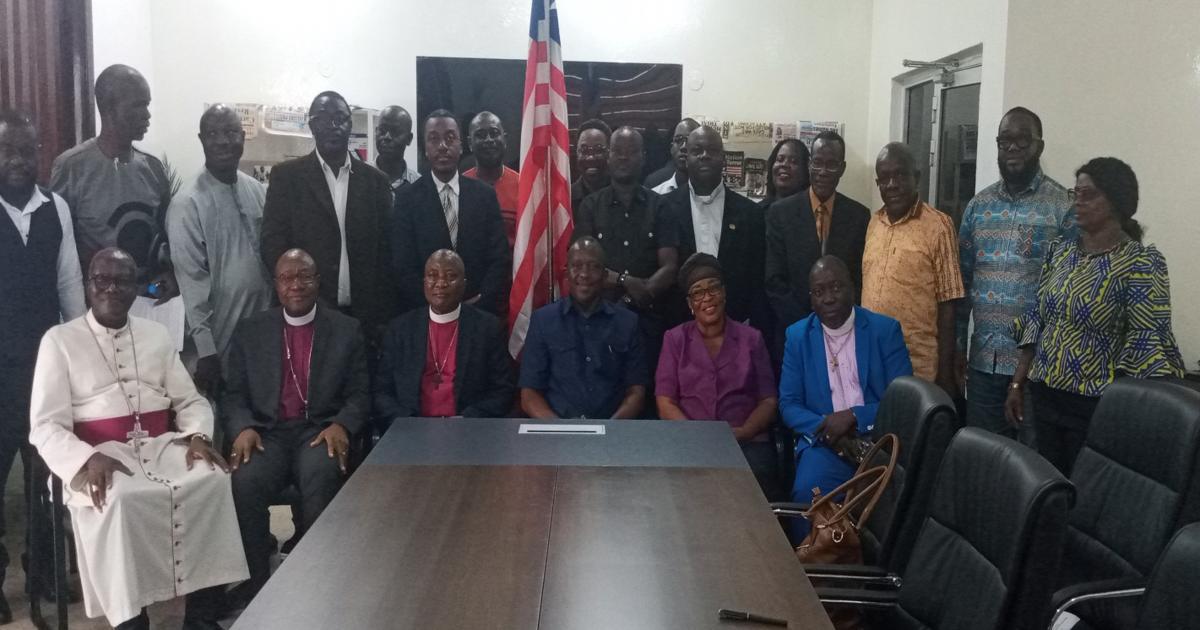Africa-Press – Liberia. Cllr. Jallah A. Barbu, Executive Director of the War and Economic Crimes Court (WECC) in Liberia, says “not a cent has been released” to fund the court in five months, including salaries and rent for the for the court’s office building. This despite an executive order from President Joseph Boakai, issued in May to extend its mandate.
Barbu made this troubling revelation during an engagement Thursday with members of the Faith and Justice Network. The event took place in the diplomatic enclave of Mamba Point, Monrovia.
“Everything is being done by dipping into our personal pockets,” he said. “This is not sustainable.” Barbu added that the financial constraints are severely undermining the office’s capacity to carry out key preparatory activities leading to the full establishment of the War and Economic Crimes Court. He warned that the lack of domestic support is also sending negative signals to international partners.
“Let it be clear,” he said, “no international partner will agree to pay salaries for our employees. That is the responsibility of the Liberian government.”
He stressed that the government’s inability to meet basic operational needs is damaging the credibility of the initiative and risks derailing momentum in the country’s quest for justice and accountability for atrocities committed during Liberia’s brutal civil conflicts.
In response to Dr. Barbu’s appeal, Bishop Samuel J. Quire, Chairman of the Board of Directors of the Faith and Justice Network (FJN) and Bishop of the United Methodist Church of Liberia, expressed concern over the situation and vowed to intervene.
“We will hold discussions with President Joseph Boakai on the urgent need to support this office,” Bishop Quire assured. “Justice cannot be achieved when those tasked with delivering it are left to work without pay.”
The religious leader further announced a number of faith-based initiatives to support the court, including public awareness and psychosocial healing campaigns across the country.
He said the FJN will launch a church-based victims healing initiative, offering spiritual counseling, trauma healing workshops, and group therapy sessions in collaboration with licensed Christian counselors.
Additionally, he disclosed that the FJN plans to train 60 church leaders to serve as Justice Ambassadors who will act as bridges between the court and local communities to promote trust and understanding.
“We will also engage with international church-based agencies and humanitarian organizations to advocate for both technical and operational support for the War and Economic Crimes Court,” Bishop Quire added.
The high-level engagement was attended by a cross-section of prominent religious leaders, including Catholic Archbishop Gabriel Jubwe, Episcopal Bishop Joseph Selee, Reverend Dr. Christopher Toe, and Rev. Kortu Brown, Secretary-General of the Liberia Council of Churches, among others.
The religious leaders expressed solidarity with the court’s mission and emphasized the moral imperative of pursuing justice for war victims.
Dr. Barbu, in concluding remarks, urged the religious community to become strong advocates for transitional justice, noting that the War and Economic Crimes Court is not merely a legal structure, but a national healing mechanism.
“Without sustained support, we risk losing an opportunity to set the record straight for generations to come,” he said.
The appeal comes at a critical time when Liberia is under increased pressure—both locally and internationally—to confront its violent past and uphold the rule of law through the establishment of the long-delayed court.
The news also comes on the heels of an historic win for Liberia. The country was just last month elected to a non-permanent seat on the United Nations Security Council. Its claim to relevance in that office: Liberians know how to wage peace.
For More News And Analysis About Liberia Follow Africa-Press






